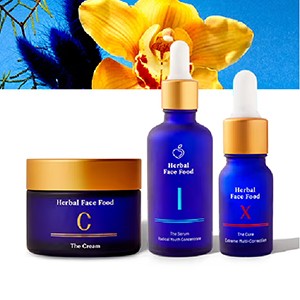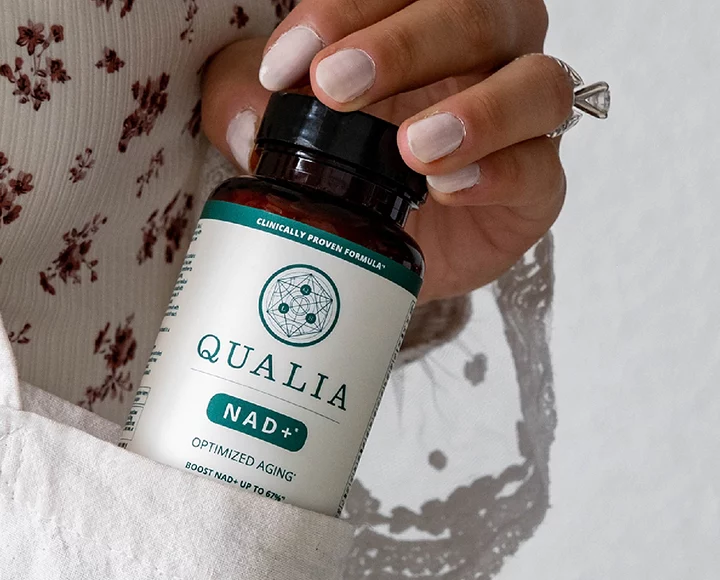From Chef Pete Evans‘ killer cauliflower “fried rice” to Crosby Tailor’s decadent, but sugar-free superfood cookies, we’re loading our plates with whole foods from a rainbow of fresh fruits, veggies, and super-clean eats that are considered “paleo.” There are a ton of great diet philosophies out there, but one thing we love about the paleo way of life is the focus on eliminating processed foods and an over-reliance on sugar and gluten. The paleo diet is instead filled with healthy fats, wild-caught fish, raw nuts and seeds, and as much produce as you can handle Sounds good to us!
Thinking about going Paleo? Here’s your crash course to stocking your kitchen right. This list might seem basic, but think about what you’re actually eating each day and how much more of these nutritious foods you can fit onto your plate. It’s not about eating less, it’s about eating better!
8 Essential Paleo Food Staples
Fruit
Fruit is your ticket to satisfying your sweet tooth without diving into a tub of ice cream. Fruit sugars are easily digested by the body and do not cause the same stress that refined white sugar does. Fruit also contains vitamins, minerals and antioxidants that help prevent cancer, protect the cells and support detox and energy levels.
TCM Tip: Eat one to two servings of fresh fruit daily and shop local and seasonal when available. Vary your choice of fruit in order to obtain its wide range of nutrients.
Vegetables
Fresh vegetables are a very important part of the Paleo diet. Vegetables are full of fiber and nutrients, helping to keep digestion strong, cholesterol levels low, the mood stable and energy high. This is of particular importance since they will be the main source of carbohydrates. Keeping the fiber intake high will also help to keep bowels regular.
TCM Tip: Eat fresh vegetables at every meal. Focus on eating hydrating vegetables such as cucumbers, celery and radishes, and cruciferous vegetables such as kale, broccoli and Brussels sprouts. Minimize consumption of higher sugar/starch vegetables such as root vegetables and winter squash.
Oils and Fats
Including healthy oils and fats into the diet is essential when eating Paleo. They are the building blocks for hormones, and are needed by both the brain and nerves to function properly. Healthy fats also help to lower inflammation, prevent depression and keep the skin soft and supple. Adding healthy fats to your meals is also needed to absorb fat-soluble vitamins such as A, D, E and K.
TCM Tip: Only eat high-quality oils and fats: olive, avocado, coconut, grapeseed, sesame (not toasted) oils; ghee (clarified butter), organic butter and bacon fat. Coconut meat and avocado are also a good source of healthy fats.
Fish
Wild-caught fish is a great source of protein. It also contains essential fatty acids such as omega-3 fatty. These fats are proven to lower inflammation, improve mental cognition, prevent Alzheimer’s and dementia, balance cholesterol levels, and support joint, eye and skin health.
TCM Tip: Only eat smaller fish that are lower in mercury. Mercury is known to cause severe damage to the brain, kidneys and nervous system and may cause mental disabilities. Avoid high-mercury fish such as shark, tuna, tilefish, mackerel, swordfish, orange roughy, marlin, sea bass and grouper.
Poultry
Poultry such as chicken, duck, turkey and eggs offer a great source of lean protein while eating Paleo. While poultry is perhaps best known for its high protein content, it also provides broad nutrient support as well. Poultry is rich in B vitamins, minerals such as zinc and copper, and the rare mineral, selenium. Eggs are also an excellent source of the fat, DHA. Most people are DHA deficient, making eggs an important food. DHA has been associated with healthy lipid metabolism, mood, vascular health, joint function, memory and skin health.
TCM Tip: Only eat free-range, pasture-raised, hormone-free, and GMO-free poultry and eggs since nutrition levels are much higher than conventionally raised, and it prevents your exposure to hormone-disrupting agents.
Meats
Meats, including beef, bison, lamb and pork, are an integral part of a Paleo diet, assuming they are raised without hormones, antibiotics, GMO-feed and are grass-fed. Animals that are raised in these conditions provide an excellent source of protein that contains important fat-soluble vitamins, fats, B12 and iron. These nutrients support reproduction, a healthy immune system, and optimal brain and nerve function. They are also the building blocks of blood and are needed to maintain lean muscle mass and a quick metabolism.
TCM Tip: The quality of the meat is of the utmost importance. Animals raised organically have higher nutrient-values, and lower levels of harmful fats. Lightly cooking the meat instead of frying or barbecuing prevents the damage of its delicate vitamins, minerals, proteins and fats.
Fermented Foods
Fermented foods should be consumed daily in small amounts, served as a condiment to a meal. Fermented foods are an excellent source of probiotics, which are healthy bacteria. Probiotics have been shown to improve digestion and mood, and to strengthen the immune system. They help to fight off bad bacteria and increase the absorption of nutrients.
TCM Tip: Choose from a wide range of fermented foods that include sauerkraut, kvass, kefir, kombucha, pickled vegetables and kimchi.
Raw Nuts and Seeds
Raw nuts and seeds are an excellent snack food that adds an additional source of minerals, protein and healthy fat into the diet. They help to lower cholesterol, balance blood sugar, support reproduction and even prevent cancer. They can also be blended into sauces, ground down into a flour for baked goods and desserts, and can be added into salads or beverages to make them more filling.
TCM Tip: Always choose raw nuts and seeds rather than roasted. The fats found in nuts and seeds can easily be damaged by high heat.












